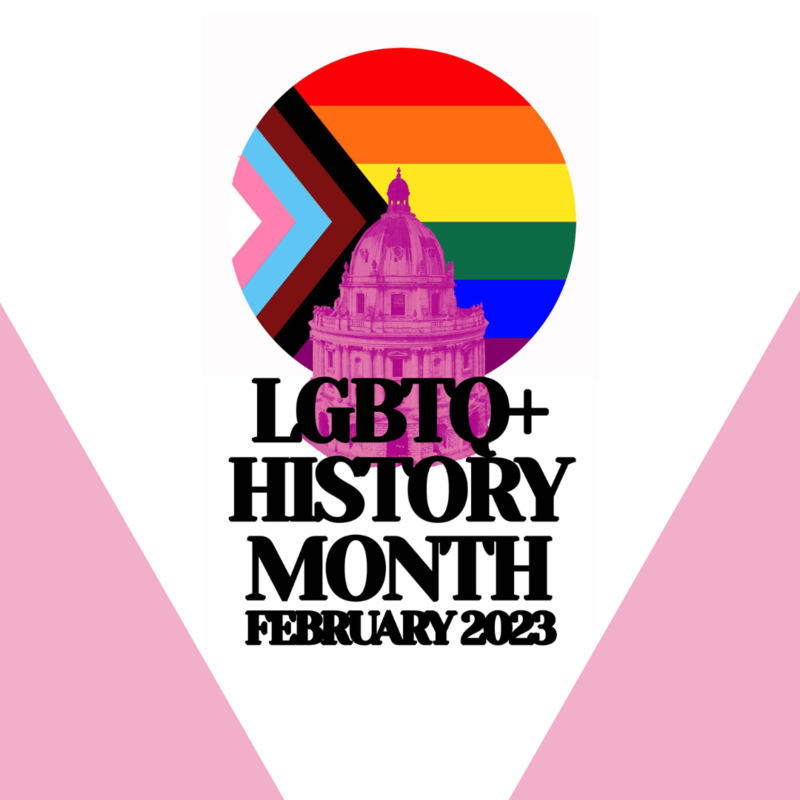LGBTQ+ History Month: A New Echo

To mark this year's LGBTQ+ History Month, DPhil candidate Victoria C. Roskams has written an article on her research into the appeal music holds for many queer writers as a faithful or compelling expression of their identity.
A New Echo
It was when writing my Masters dissertation that I first became interested in the appeal music holds for many queer writers as the most faithful or compelling expression of their identity. Particularly, I became interested in this idea as it manifested at a time when few ways to openly express that identity seemed available. Music had a unique resonance for gay male writers at the end of the nineteenth century. All the major sexologists of the era – Richard Krafft-Ebing, Havelock Ellis, Magnus Hirschfeld – touch upon the possibility of gay men’s special propensity, or at least affinity, for music. According to other writers of the period, this notion was widespread enough that the mere question “Are you musical?” could act as a code (“Are you peculiarly fond of Wagner?” was, apparently, the code of choice for the especially discerning). The idea arose partly from the “inversion” model of sexuality, which held that gay men were more likely to possess an abundance of feminine traits, among these aptitude for music.
Eve Kosofsky Sedgwick contrasts “minoritising” and “universalising” views of sexual definition, and music, for the writers I looked at in that study, provided a labile metaphor for both: suggesting the definite outlines of a newly emergent identity and, equally, the fluidity of desire. For Oscar Wilde, in The Picture of Dorian Gray, music triggers an indeterminate atmosphere, its refusal to “speak” (never conveying anything but abstract ideas to the listener) likened to the “love that dare not speak its name” but, at the same time, never definitively confirming the presence of such love in the tale. “Music was not articulate”, Wilde writes. Music becomes articulate, by contrast, in E.M. Forster’s long latent, and now classic, novel Maurice. Forster uses a reference which was admittedly not available to Wilde in 1890 (although I doubt whether he would have made use of it anyway). Maurice is laced with references to Symphony No. 6 by Pyotr Ilyich Tchaikovsky, premiered in 1893 just nine days before the composer’s death. The symphony’s title, Pathétique, was taken by many to refer to Tchaikovsky’s homosexuality, specifically his doomed love for his nephew, the symphony’s dedicatee (in a neat pun, one of Maurice’s characters redubs it the ‘Pathic’). After reading up on Tchaikovsky, Maurice discovers a kind of cultural kinship with this fellow gay man he has never met: an ability to be profoundly affected by music, in this novel, is constitutive of identity. Perhaps, Forster wonders, this is a privileged identity, admitting one into a group whose members can see and feel more deeply into the truth of things, life in all its dizzying joy and gut-wrenching tragedy. To return to Sedgwick’s distinction: Forster's use of music is redolent of the politics adopted by gay liberationists later in the twentieth century, insisting on essential differences and the importance of community; Wilde’s use of music recalls those who, conversely, insist on the queer as a universal, but complex and irreducible, possibility.
When looking for a writer to sandwich between Wilde and Forster (quite the mental image), I encountered the still under-appreciated homophile activist and multi-hyphenate Edward Carpenter, about whom I have written elsewhere. A keen amateur pianist and avid Beethoven fan, Carpenter also famously inspired Forster to write Maurice. The pastoral idyll to which Maurice and Alec retreat was based upon the rural Derbyshire existence of Carpenter and his partner George Merrill (if Forster is to be believed, it was a light touch on the buttocks from Merrill that really gave birth to the novel). Carpenter, in his book The Intermediate Sex, grappled with the trope of gay men’s musicality, recognising its potential in constructing a positive image of homosexuality based on feeling, sympathy, culture; but resisting its implication of an inherent femininity in gay men which, as he noted, might only reaffirm a heteronormative model of desire.
During my doctoral studies, I have often returned to these ideas (despite them not being strictly central to my topic). I have encountered female writers, such as Ethel Smyth, Amy Levy, and Vernon Lee, for whom music held exciting, if not uncomplicated, possibilities in relation to their queer identities – women having been mostly overlooked in late-nineteenth-century discussions about homosexuality and music. After finishing my thesis, I returned to Dorian Gray and made a discovery. Chasing up possible avenues for understanding Wilde’s interpolation of Wagner, I discovered the pianist and composer Clement Harris. Harris’s diary is only available in German, which is perhaps why no English-speaking critic, as far as I can tell, has yet placed him alongside the long-accepted John Gray as a possible inspiration for Dorian. Around 1889, the eighteen-year-old Harris befriended Wilde. Like Dorian and Henry, they attended the opera together; like Dorian and Henry, Harris would play the piano while he and Wilde discussed art, philosophy, love – and Wagner. Wilde even told Harris that the latter’s playing unnerved him – all this while working on a novel whose musical protagonist gains such an uncanny ability to disturb. Harris went on to form a close romantic attachment with Richard Wagner’s son, Siegfried. And in June 1895, Siegfried arrived in London to conduct the symphonic poem, Sehnsucht (‘Yearning’), which he had composed while travelling with Harris – mere weeks after Wilde’s trials, at which the novel Harris had partly inspired was produced as evidence against the author, and Wilde defended the “love that dare not speak its name”. Behind that defence, then, was music, an ever-compelling way to speak – and to avoid speaking.
Victoria C. Roskams is a DPhil candidate at Mansfield College. Her thesis explores representations of music and composers in nineteenth-century fiction.



